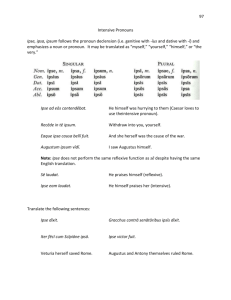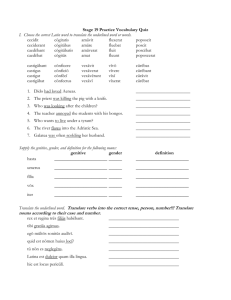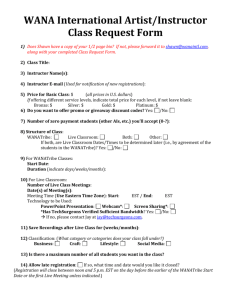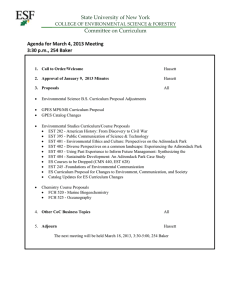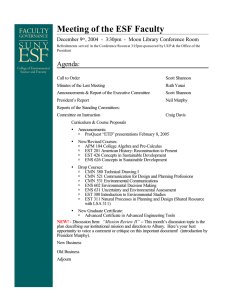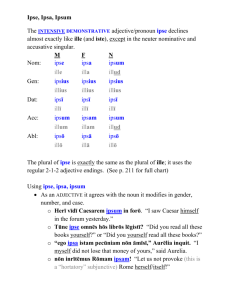Ipse, Ipsa, Ipsum PRACTICE SENTENCES
advertisement
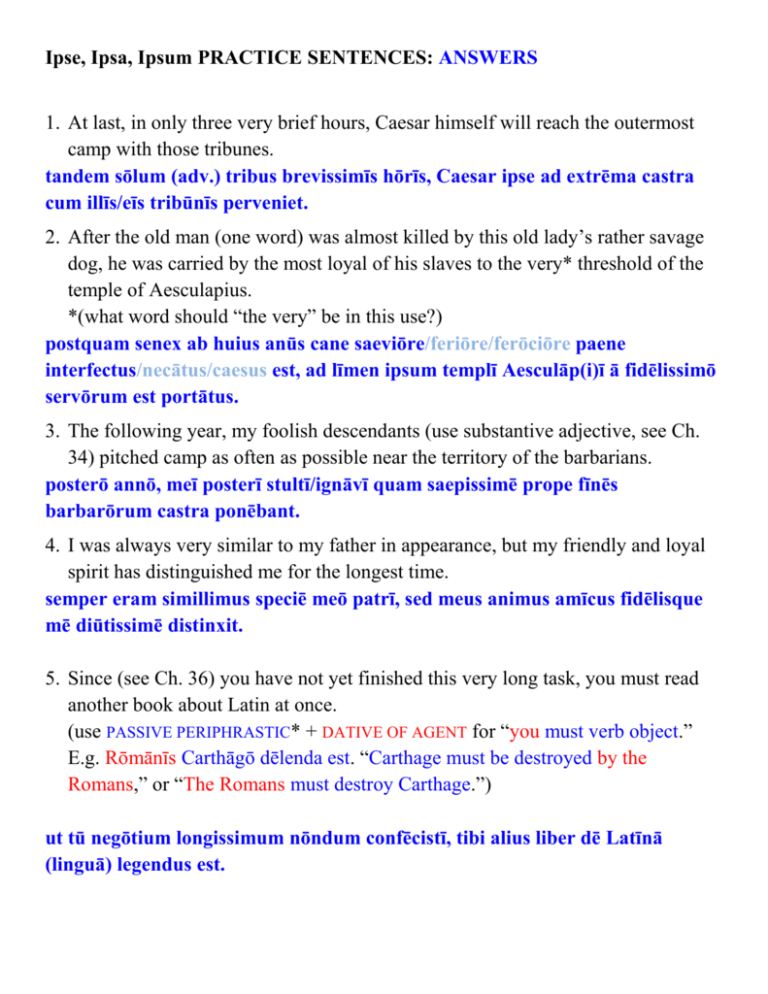
Ipse, Ipsa, Ipsum PRACTICE SENTENCES: ANSWERS 1. At last, in only three very brief hours, Caesar himself will reach the outermost camp with those tribunes. tandem sōlum (adv.) tribus brevissimīs hōrīs, Caesar ipse ad extrēma castra cum illīs/eīs tribūnīs perveniet. 2. After the old man (one word) was almost killed by this old lady’s rather savage dog, he was carried by the most loyal of his slaves to the very* threshold of the temple of Aesculapius. *(what word should “the very” be in this use?) postquam senex ab huius anūs cane saeviōre/feriōre/ferōciōre paene interfectus/necātus/caesus est, ad līmen ipsum templī Aesculāp(i)ī ā fidēlissimō servōrum est portātus. 3. The following year, my foolish descendants (use substantive adjective, see Ch. 34) pitched camp as often as possible near the territory of the barbarians. posterō annō, meī posterī stultī/ignāvī quam saepissimē prope fīnēs barbarōrum castra ponēbant. 4. I was always very similar to my father in appearance, but my friendly and loyal spirit has distinguished me for the longest time. semper eram simillimus speciē meō patrī, sed meus animus amīcus fidēlisque mē diūtissimē distinxit. 5. Since (see Ch. 36) you have not yet finished this very long task, you must read another book about Latin at once. (use PASSIVE PERIPHRASTIC* + DATIVE OF AGENT for “you must verb object.” E.g. Rōmānīs Carthāgō dēlenda est. “Carthage must be destroyed by the Romans,” or “The Romans must destroy Carthage.”) ut tū negōtium longissimum nōndum confēcistī, tibi alius liber dē Latīnā (linguā) legendus est.



